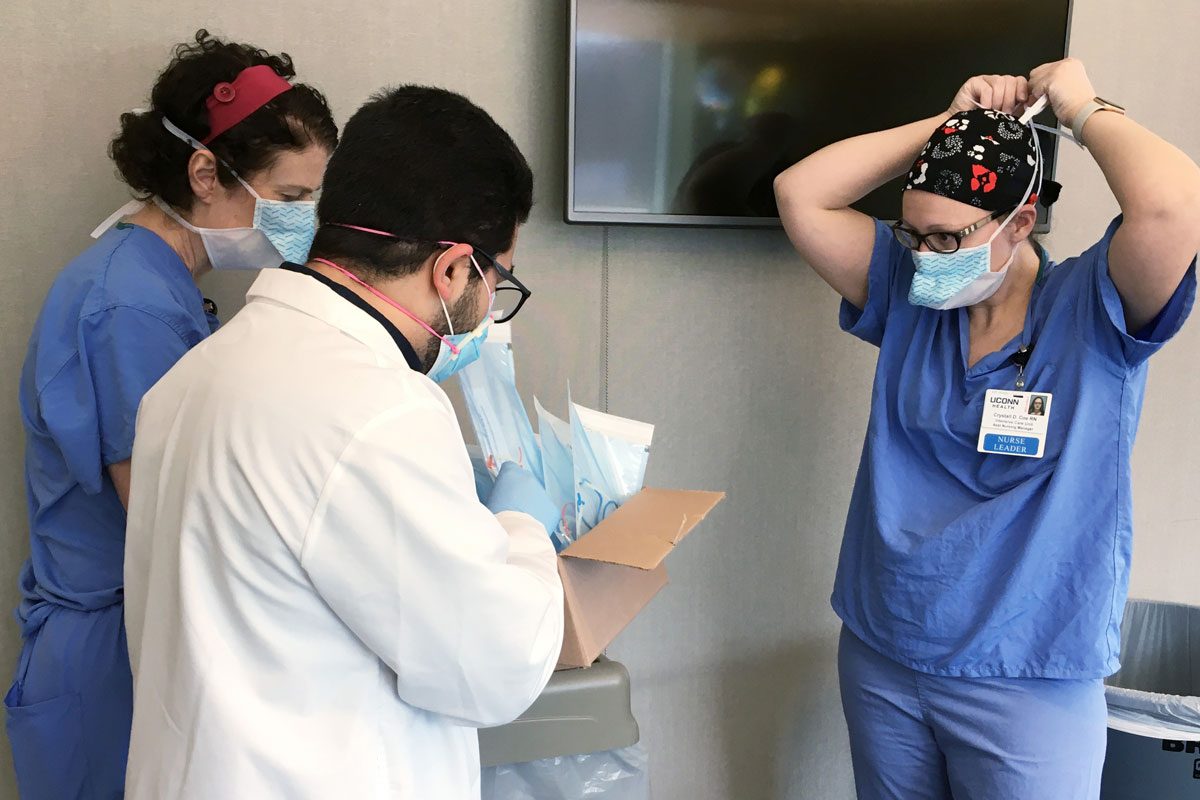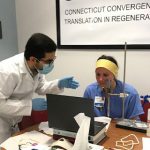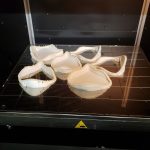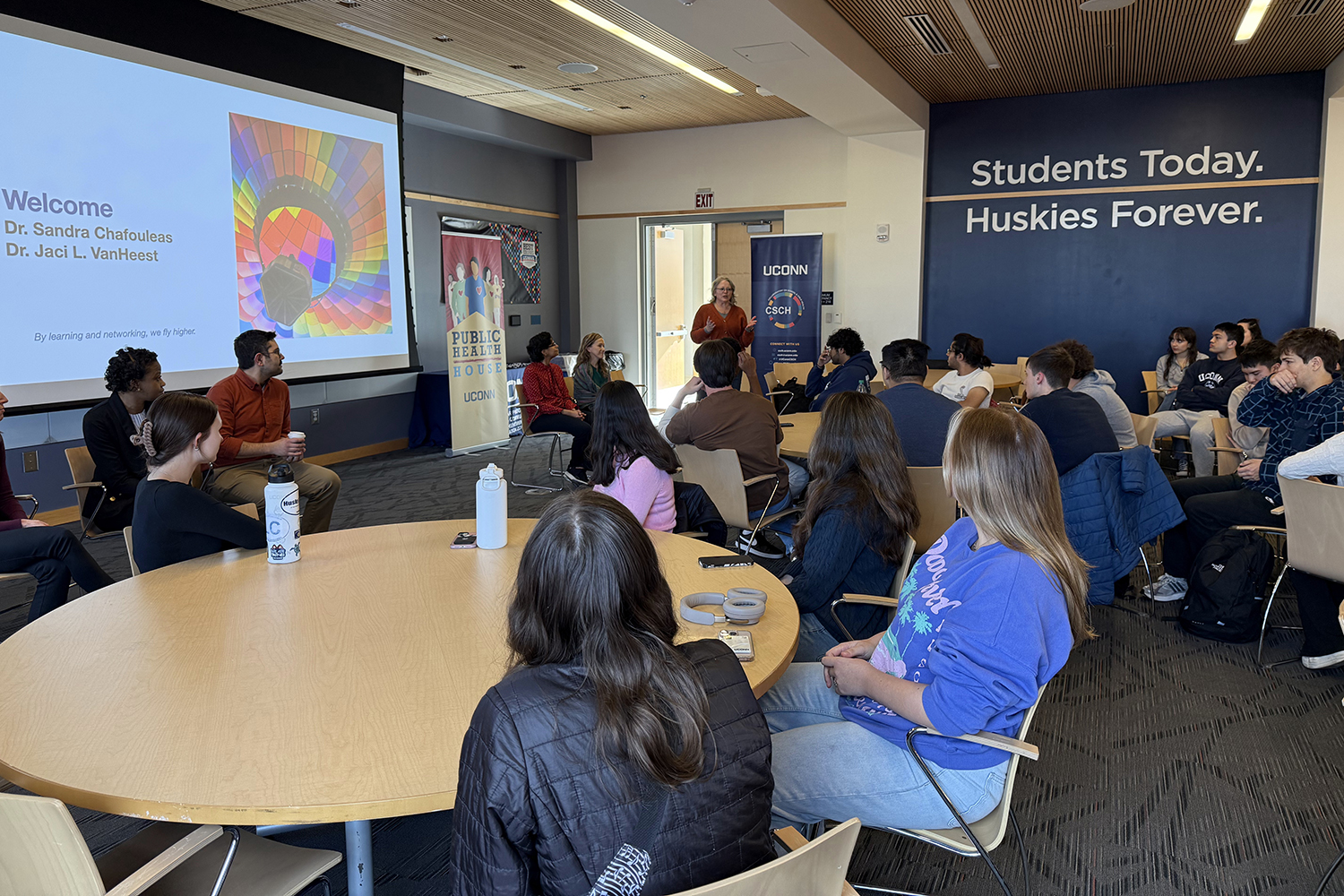UConn is developing the latest innovative approach to tackling the personal protective equipment (PPE) shortage that has developed in the wake of the coronavirus pandemic, and it has already been used to protect front-line providers at UConn Health.
The Connecticut Convergence Institute for Translation in Regenerative Engineering has developed a method to fabricate custom-fit mask frames and exoskeletons to give conventional masks the optimal protective qualities of N95 respirators.
“We use a combination of facial recognition software and 3D printing to create the exact dimensions and make the perfect size,” says Dr. Cato T. Laurencin, the institute’s CEO. “It’s very difficult to make one-size fits all, and one size shouldn’t fit all.”
A machine shop in the UConn School of Engineering in Storrs is handling the 3D printing. The first lot of custom-fit mask frames was delivered to nurses in UConn Health’s intensive care unit Thursday.
N95 respirator masks, generally seen as the most effective facial PPE to prevent the spread of the COVID-19 virus, continue to be in high demand in health care worldwide. To be at their most effective, they need to pass a fit test to demonstrate they form a proper seal on the wearer’s face. With a properly sized mask frame or exoskeleton to fit over them, conventional masks can meet N95 standards, resulting in thousands of safer protective masks in UConn Health’s case.
UConn has submitted a patent application on this innovation.
“This could be a life-saving tool that we can use right away to preserve lives in the global fight against this pandemic,” Laurencin says. “The university is already beginning to partner with companies in the state that are interested in mass producing these.”






